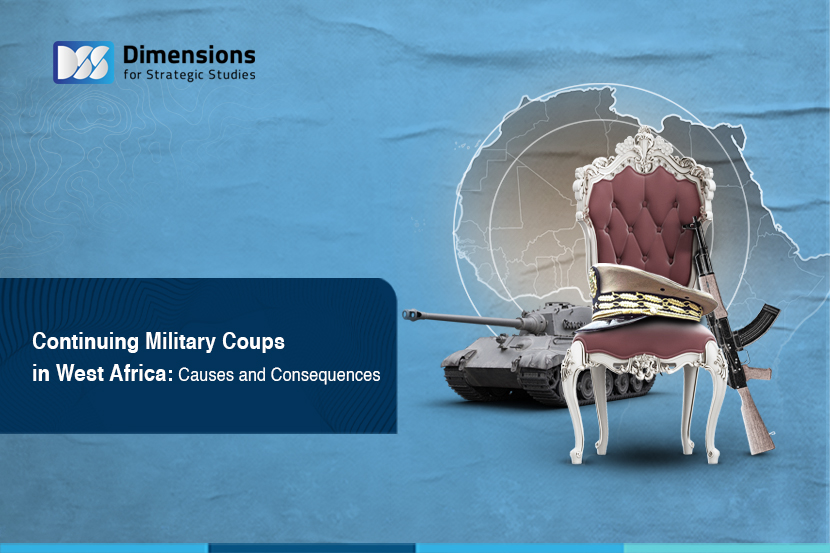
Continuing Military Coups in West Africa: Causes and Consequences
2023-09-122300 view
Through monitoring and analysing the situations in seven West African countries, the author endeavours to investigate the phenomenon of the resurgence of coups in the region.
In the aftermath of regaining national independence in many West African countries from European colonial rule, a recurring phenomenon of military coups began to emerge, shaking the region. This complex phenomenon has both internal and external roots and drivers.
One of the foremost internal factors is elite rivalry and the struggle for power. Upon attaining independence, the bonds of national unity often erode, giving way to political and military elites competing for authority. These contests can be fuelled by personal or ethnic motivations, a trend observed in several cases across the region.
Moreover, the autocratic grip on power and its dynastic transfer are deemed as pivotal factors. Leaders wielding authority often lean towards enhancing their personal prestige and wealth rather than serving the common good. This autocracy and corruption foment public protests and discontent, leading military figures to position themselves as an alternative solution.
Furthermore, the richness of natural resources plays a pivotal role in intensifying power conflicts, particularly amidst the increasing rivalry among major nations. This brings us to the impact of external factors, where states and other entities strive to pursue their interests and extend their influence in the region. This often aligns with their support for coup attempts, exemplified by the waning French influence and the endeavours of Russia, China, and the United States to exploit the resulting vacuum.
Read more on the folowing link: (Click here)





